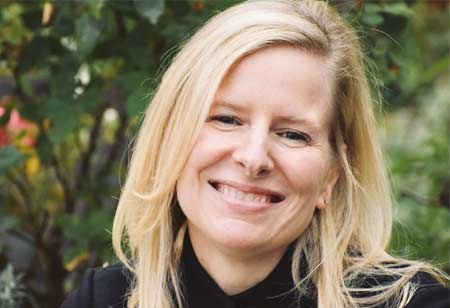For Christy Clark, business is personal. That’s because, at DTE Energy, where Clark serves as director of environmental engineering, her passion for environmental stewardship is built into the business.
Being an energy supplier and a leader in the conservation space may not seem like a natural fit, but at DTE, caring for the environment is a core part of their mission as a member of the business community. For Clark, that made it easy to find her place in the company.
“Protecting the environment and our natural resources is a passion and core belief for me,” Clark said. “My entire career has been environmental work. I think of our natural resources - air, land and water - as a precious gift. If we don’t take care of this gift, we will lose it, potentially forever.”
Clark has been proud to lend her expertise and her passion in this space to DTE as the company continues to go above and beyond in the environmental space
While compliance with environmental rules and regulations is an important part of Clark’s work, it doesn’t stop there for her or for DTE.
Between the environmental goals and the social justice work within the communities it serves, DTEP is a mission that’s close to Clark’s heart.
Part of DTE’s mission is to be the best in the world and best for the world, and the business’s goal extends to its conservation and environmental work, as well. One way the company works to accomplish this high-reaching ambition is to incorporate conservation into many of its job sites
Of course, there are plenty of DTE sites that are dedicated to clean energy generation. With 14 percent of the energy generated at DTE coming from renewable sources, there are plenty of solar and wind farms throughout Michigan. But there are plenty of ways the company has made environmentalism its mission beyond renewable energy.
With properties all over the state that support, distribute and generate energy, there are plenty of opportunities to embrace the natural world right in DTE’s own backyard. Pollinator gardens can be found at the company’s gas and electric service centers, ensuring that land owned by DTE is used to its full advantage. These gardens support the creatures that pollinate plants responsible for bringing us food, including fruits, vegetables, and nuts. These plants also supply half the world’s oils, fibers, and raw materials, prevent soil erosion, and increase carbon sequestration, making supporting pollinators a top priority for conservation-focused businesses.
One of the core projects supported by DTE and Clark, however, has even more to do with environmental stewardship in the communities that need it the most.
The Detroit Tree Equity Partnership was launched in the fall of 2022 to improve Motor City’s tree canopy in its most underserved neighborhoods. The partnership is made up of non-profits like American Forests and the Greening of Detroit as well as the City of Detroit and business partners like DTE and aims to add 75,000 trees to the city over five years.
To support this effort, DTEP has a jobs program that will hire and train hundreds of Detroiters facing barriers to employment in the art of urban forestry. If other cities see an opportunity in the work that the partnership is accomplishing, the partnership is designed to be a working model that can be applied anywhere, improving tree canopies for communities around the country and the world.
Between the environmental goals and the social justice work within the communities it serves, DTEP is a mission that’s close to Clark’s heart.
“We want to work with our communities in a meaningful way so that all Detroiters feel like they played a part in improving the tree canopy in their city,” she said. “My favorite conversation about DTEP is talking about the many benefits trees provide – cleaner air, less stormwater runoff, temperature reduction on hot days, and economic benefits. It’s a great day when you help a neighbor see that a tree is an asset, not a liability.”
As the work of many businesses grows in the conservation and environmental space, Clark and DTE are looking forward to opportunities to lead by example in everything from energy efficiency programs to renewable energy generation and community projects to land conservation.
“I think the future of environmentalism in business requires committing to and being vocal about sustainability and showing metrics on reducing your footprint,” Clark said. “It means being environmental stewards within our communities, beyond compliance. I am a big believer in nature-based solutions. Our natural resources are amazing problem solvers.


